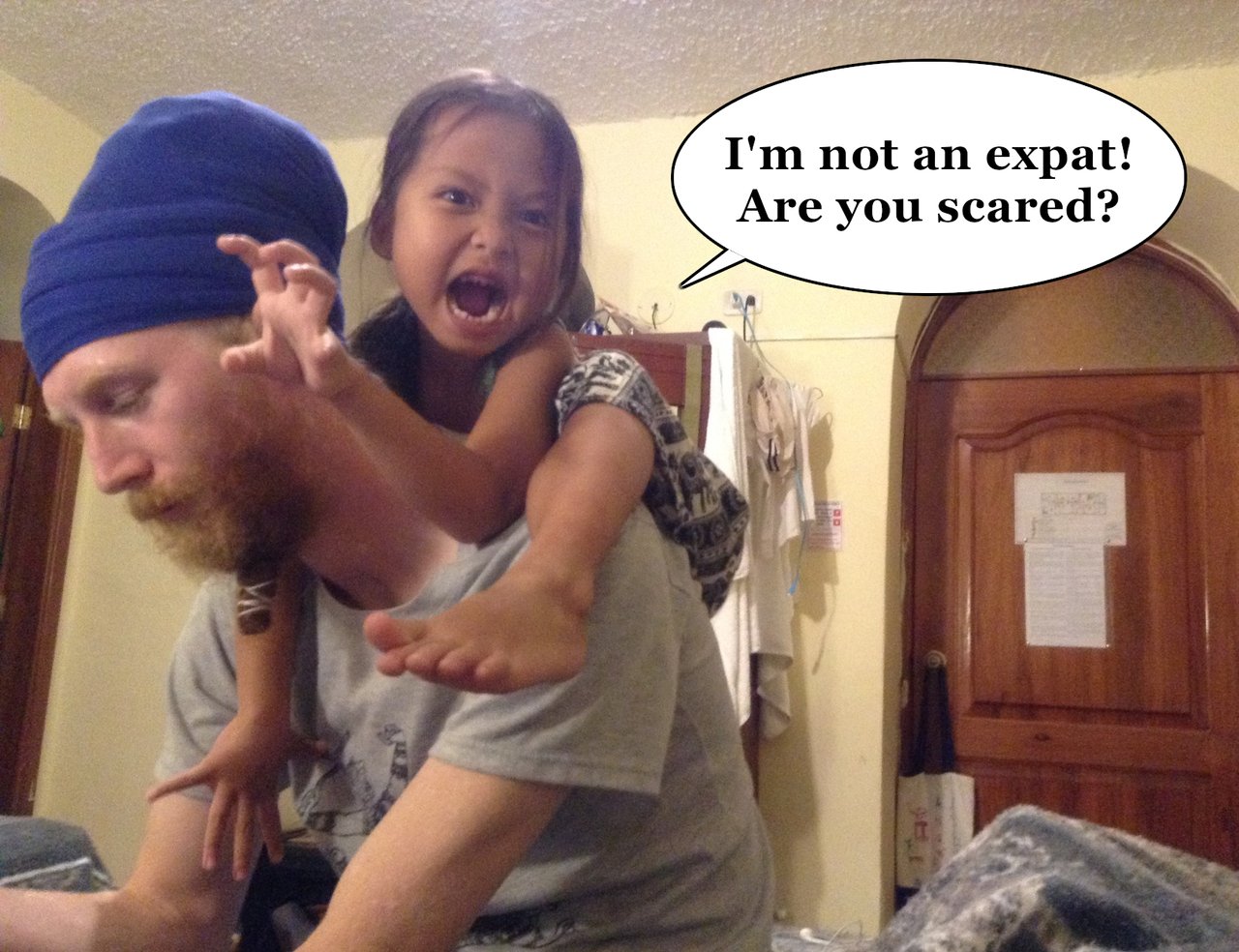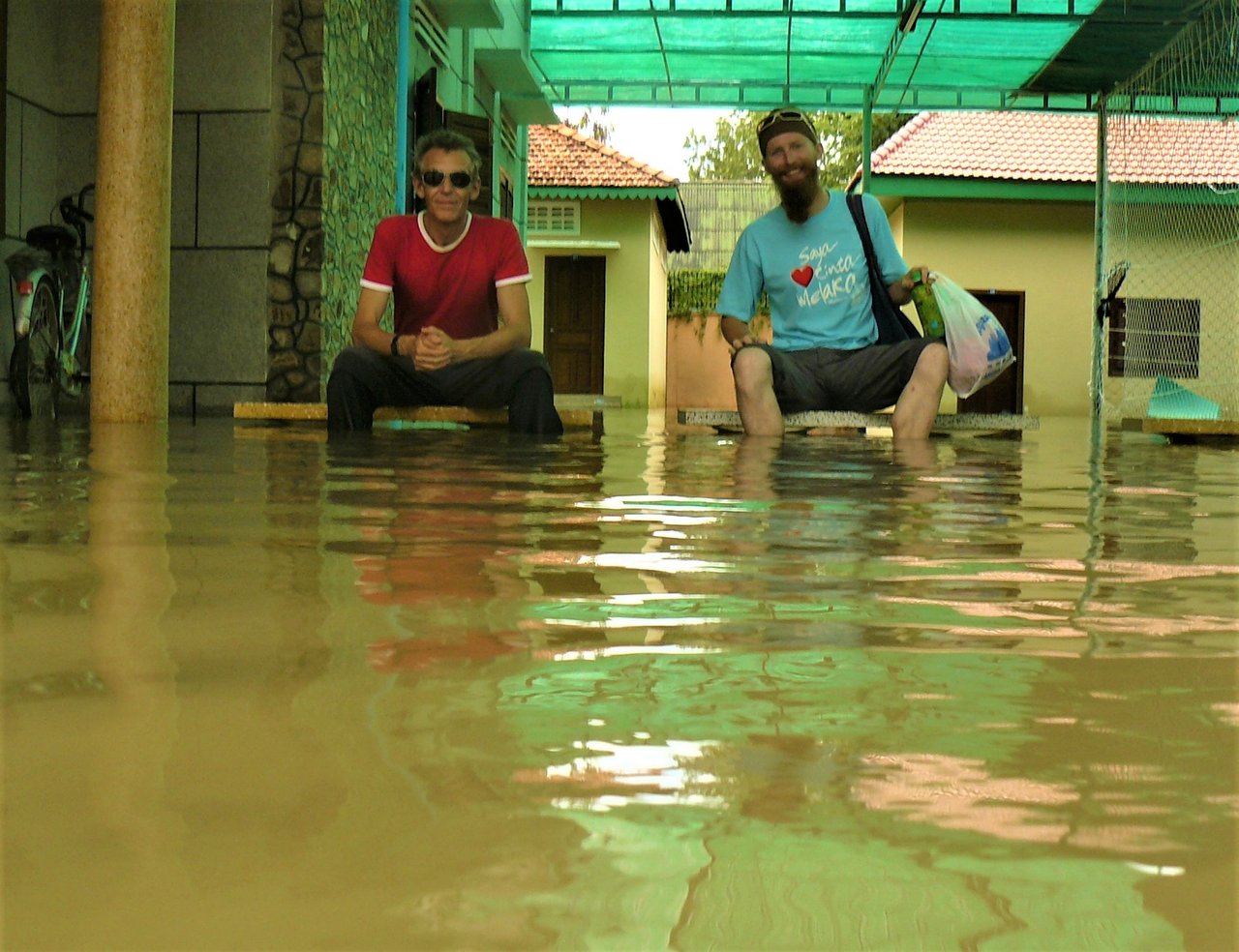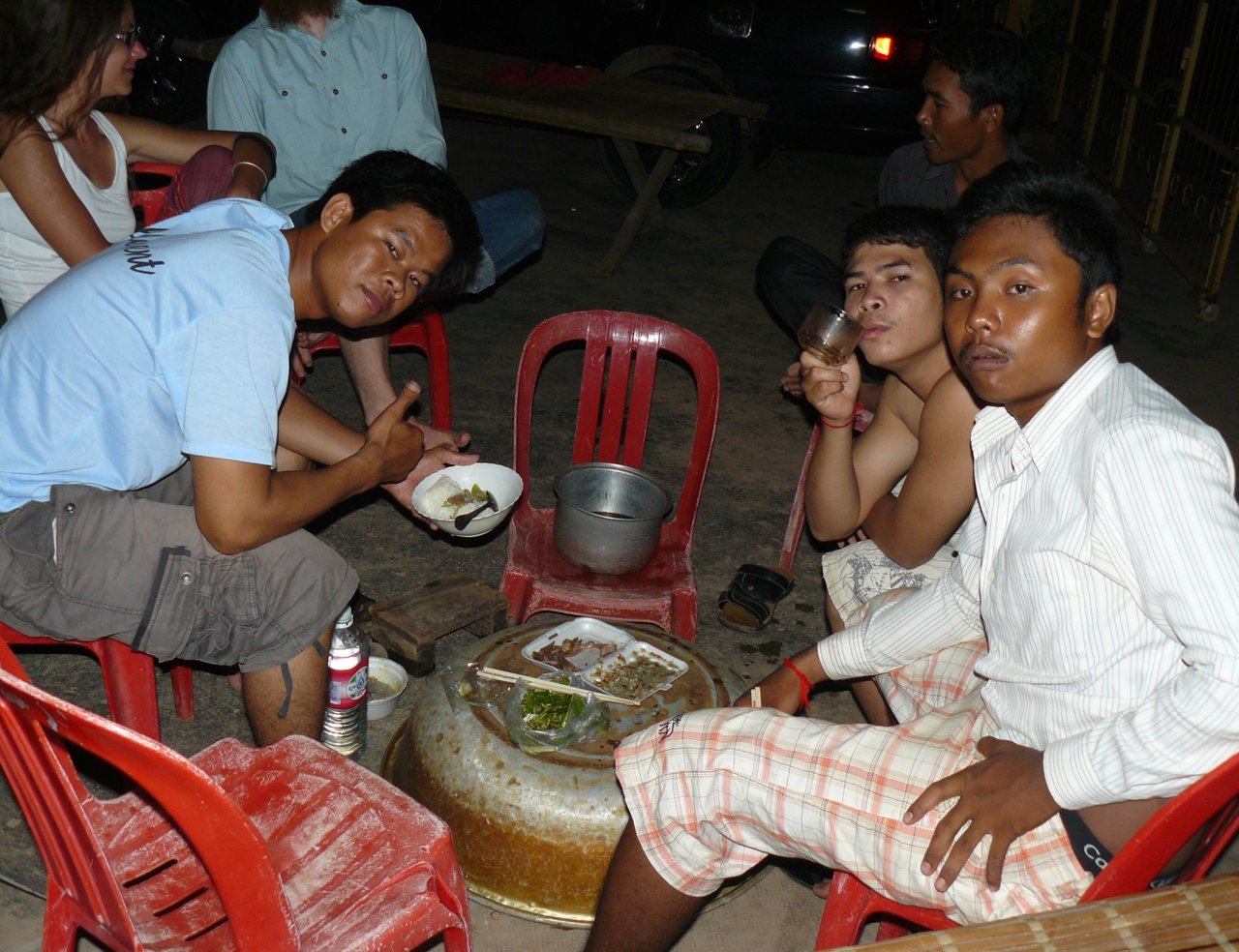The words "expat," "immigrant" and "migrant" mean very different things to different people.
🕵️ | BY DEFINITION | 📚
First, let's get the dictionary definitions out of the way before jumping in too deep. Below is a list of these three words and their definitions.
| (1) a person who lives in a foreign country | |
| (1️) a person who comes to a country to take up permanent residence; (2) a plant or animal that becomes established in an area where it was previously unknown | |
| (1) a person who moves regularly in order to find work especially in harvesting crops; (2) an animal that shifts from one habitat to another |
✈️ | A WORD OF PRIVILEGE | 💰
"Expat" is a word I had never even heard until about 10 years ago. Call it naivety or ignorance, but I had never encountered a so-called expat growing up in the countryside of Indiana. Well, at least the Mexicans, Haitians, Guatemalans and Jamaicans that I knew in the USA never referred to themselves using this word.
 Sakana living up to her moniker - Monkey B 🐵
Sakana living up to her moniker - Monkey B 🐵
 Sakana living up to her moniker - Monkey B 🐵
Sakana living up to her moniker - Monkey B 🐵 It was 2010 in a touristy part of Siem Reap when I first overheard someone say the word expat while walking down a narrow alley. I didn't ponder it's meaning much until I had heard the word hundreds of more times over several months. I was new and green in the world of living abroad, so I had much to learn and didn't want to bother anyone by asking too many questions.
My reason for moving to Cambodia in 2010 was to escape poverty and try to improve the general quality of my life. After hearing English teaching was the easiest job to get, I put in applications at all the international schools. I thought surely I'd find work quickly, but after a few weeks I began to think my turban, beard, lack of a college degree and ESL teacher qualifications were preventing school directors from taking a risk by hiring me. I would eventually find work at lower-tier schools where my coworkers were mostly Cambodians, Filipinas and Nigerians.
 A typical day after work at school - flooding is no good reason to cancel 🌊
A typical day after work at school - flooding is no good reason to cancel 🌊
 A typical day after work at school - flooding is no good reason to cancel 🌊
A typical day after work at school - flooding is no good reason to cancel 🌊 After some months teaching in Cambodia, I realized I was in two different social worlds. One social group was mostly Filipinas, Nigerians and Cambodians, and the other was mostly Americans, Europeans and Australians. I had my foot in both worlds, but tended to spend more time with the former. The Americans, Europeans and Australians tended to refer to themselves as "expats", and the Nigerians and Filipinas didn't seem to call themselves anything other their nationality. I didn't have a preference for either group, but the Nigerians and Filipinas knew how to go out on a budget similar to mine, so I knew it was safer to hang out with them.
I eventually began to realize the word expat seemed very loaded. I had not liked using the word to refer to myself, but knew Cambodian citizenship was not an option for me, so immigrant was also an incorrect term. I was certainly not a migrant, because I didn't intend to go anywhere else. I began to realize the word expat was applied to working professionals, those wealthy enough not to work and those who could afford to choose how much they worked.
🥼 | AN EXPERIMENT DEVISED | 🧪
I decided I would conduct an experiment to see if I was really this naive. I had been referring to my Nigerian and Filipina friends as expats because I didn't know what else to call them; they too, like me, were ineligible to become Cambodian citizens. I would put this to the test by having a dinner party at my house (prison cell-sized room). I invited several Nigerian and Filipina coworkers, and told them some "westerner" friends were also going to come. I told the "westerner" friends some other "expat" friends would also be coming. There wasn't much more to it than that; things had been put into action. Time to cook, prepare for house guests and probably an interesting conversation.
 👨🍳 A cook is more useful in the kitchen than in the classroom anyways 👨🏫
👨🍳 A cook is more useful in the kitchen than in the classroom anyways 👨🏫
 👨🍳 A cook is more useful in the kitchen than in the classroom anyways 👨🏫
👨🍳 A cook is more useful in the kitchen than in the classroom anyways 👨🏫 It only took a few minutes after guests arrived to realize my naivety. The westerner friends were quite surprised to see half the party was black and brown. They did well enough to hide their astonishment by engaging in awkward conversation, but it was enough for me to realize the power of words. It was obvious enough the westerner friends had assumed the other expats were white, or at least from wealthy countries. Had I referred to the other dinner guests as "immigrants", I'm sure there would've been some extra questions.
🧻 | THE DIRTY WORDS | 💩
Of the dirty words, "immigrant" and "migrant", migrant has certainly become more demonized in recent years. Neither word seems to come with a positive connotation, especially in these Trumpian times we are living in. There is an ever-increasing surge of nationalism and anti-immigrant/migrant sentiment growing around the world. Even here in Suriname where I now live, there is a wave of Haitian hysteria brewing.
 Dinner with my Cambodian neighbors in a very typical scenario 🍽️
Dinner with my Cambodian neighbors in a very typical scenario 🍽️
 Dinner with my Cambodian neighbors in a very typical scenario 🍽️
Dinner with my Cambodian neighbors in a very typical scenario 🍽️ The word "immigrant" is often associated with people from lower economic classes doing jobs that aren't necessarily respected, skilled or high-paying. In Indiana, my homestate in the USA, immigrant seems to also mean the person doesn't speak English. Pardon the pun, but either way you stack it, the word immigrant is loaded with negative stigma. I think now it could even be argued that the word immigrant is also generally associated with crime, poverty and drugs.
"Migrant" subconsciously screams "STRANGER DANGER!" The first thought most non-woke people have when they hear migrant is hungry and needy people on foot in groups. I won't deny there are plenty of hungry and needy migrants around the world, but the word doesn't need to immediately conjure negative thoughts. Many cultures around the world are nomadic, which means they are in a constant state of migration. What's so dangerous about somebody being somehwere for an unknown amount of time?
 Me riding a motodup between Aranyaprathet & Poipet - a popular Cambodian migrant route to Thailand 🏍️
Me riding a motodup between Aranyaprathet & Poipet - a popular Cambodian migrant route to Thailand 🏍️
 Me riding a motodup between Aranyaprathet & Poipet - a popular Cambodian migrant route to Thailand 🏍️
Me riding a motodup between Aranyaprathet & Poipet - a popular Cambodian migrant route to Thailand 🏍️ 🗺️ | GOING FORWARD | 🔮
I've now changed how I approach and use these terms. Whether or not the person has a good sense of humor determines how far I'll take it. When in social situations with entitled expat types, I make sure to ask them if they are an immigrant too. I try to have fun with it, and every now and then it sparks a good conversation.
In general though, I now refer to all immigrants as expats in casual conversation. Language changes with the times, so I try to adapt. When I visit the USA, I like to test phrases like "I know some Thai expats that have a really good restaurant. Do you want to go?" and "The Chinese grocery store has the best prices, all the expats go there." As long as I get weird stares when I say things like this, I know not much has changed.
WHAT DO YOU THINK?
Are you an expat, immigrant or migrant, and what do these terms mean to you?
Please tell me in the comments below.
Follow @justinparke, upvote and resteem if you like this post.
View this post on TravelFeed for the best experience.
